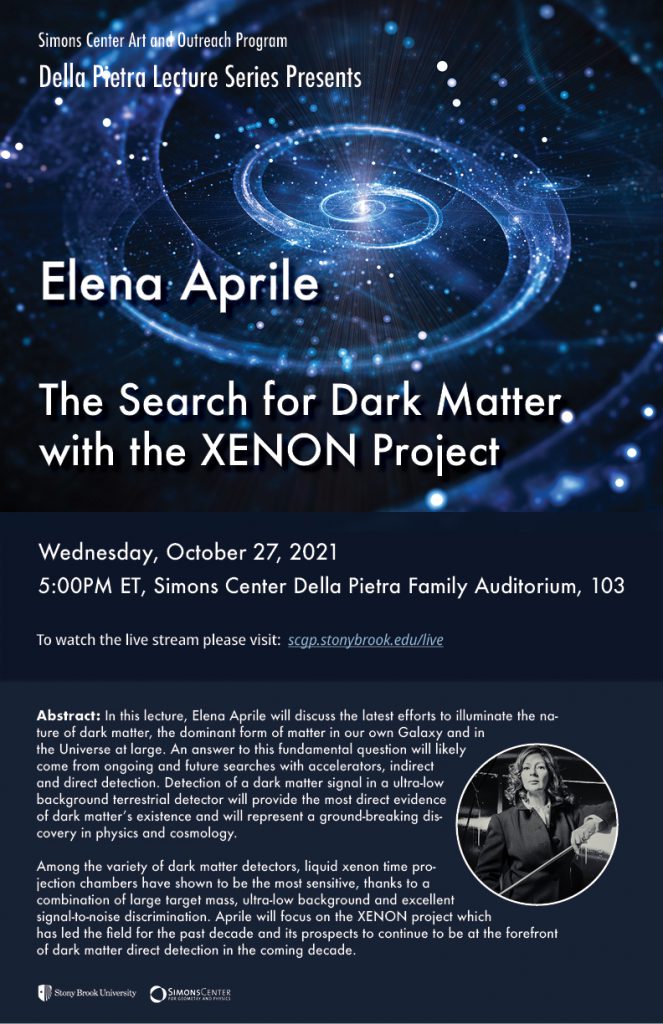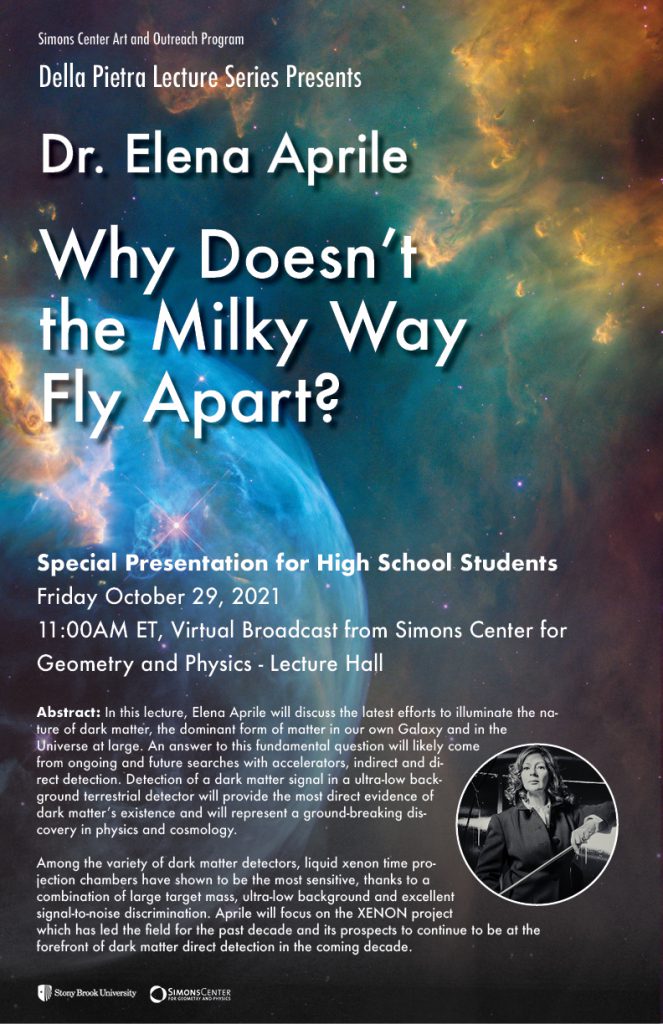General Public Lecture
Date: Wednesday, October 27th, 2021
Lecture: 5PM ET
Location: Della Pietra Family Auditorium – 103
Title: “The Search for Dark Matter with the XENON Project”
Abstract: In this lecture, Elena Aprile will discuss the latest efforts to illuminate the nature of dark matter, the dominant form of matter in the Universe. An answer to this fundamental question will likely come from ongoing and future searches with accelerators, indirect and direct detection. Detection of a dark matter signal in a ultra-low background terrestrial detector will provide the most direct evidence of dark matter’s existence and will represent a ground-breaking discovery in physics and cosmology.
Among the variety of dark matter detectors, liquid xenon time projection chambers have shown to be the most sensitive, thanks to a combination of large target mass, ultra-low background and excellent signal-to-noise discrimination. Aprile will focus on the XENON project which has led the field for the past decade and its prospects to continue to be at the forefront of dark matter direct detection in the coming decade.

Technical Talk for Faculty and Advanced Graduate Students
Date: Thursday, October 28th, 2021
Lecture: `11AM ET
Location: SCGP Lecture Hall – 102
Title: Recent Results and Status of the XENON Dark Matter Project
Abstract: The XENON Dark Matter Project aims at the direct detection of Dark Matter WIMPs as they scatter off a liquid xenon target in a two-phase time projection chamber (TPC). With steadily increased target mass and lower background, the XENON experiments have set world-leading limits on WIMP-nucleon interactions over a broad mass range – most recently with XENON1T, the first to use a XeTPC at the tonne scale. Its unprecedented low background coupled with the tonne-year exposure also enabled searches for rare nuclear processes, the coherent elastic scattering of solar neutrinos and alternative Dark Matter candidates. Notably, an excess of low-energy electronic recoil events was observed whose origin could not be determined. This will be one of the science goals of the data being taken with the upgraded experiment, called XENONnT. With 8.6 t of LXe of which 5.9 t active, XENONnT will also have a WIMP sensitivity by more than an order of magnitude beyond current limits. In this seminar I will highlight the recent XENON1T results and give an overview of XENONnT’s innovative systems, status and physics reach.
Special Presentation for High School Students
Date: Friday, October 29th, 2021
Lecture: Virtual Broadcast – 11 AM ET
Title: “Why Doesn’t the Milky Way Fly Apart?”
Abstract: In this lecture, Elena Aprile will discuss the latest efforts to illuminate the nature of dark matter, the dominant form of matter in the Universe. An answer to this fundamental question will likely come from ongoing and future searches with accelerators, indirect and direct detection. Detection of a dark matter signal in a ultra-low background terrestrial detector will provide the most direct evidence of dark matter’s existence and will represent a ground-breaking discovery in physics and cosmology.
Among the variety of dark matter detectors, liquid xenon time projection chambers have shown to be the most sensitive, thanks to a combination of large target mass, ultra-low background and excellent signal-to-noise discrimination. Aprile will focus on the XENON project which has led the field for the past decade and its prospects to continue to be at the forefront of dark matter direct detection in the coming decade.



